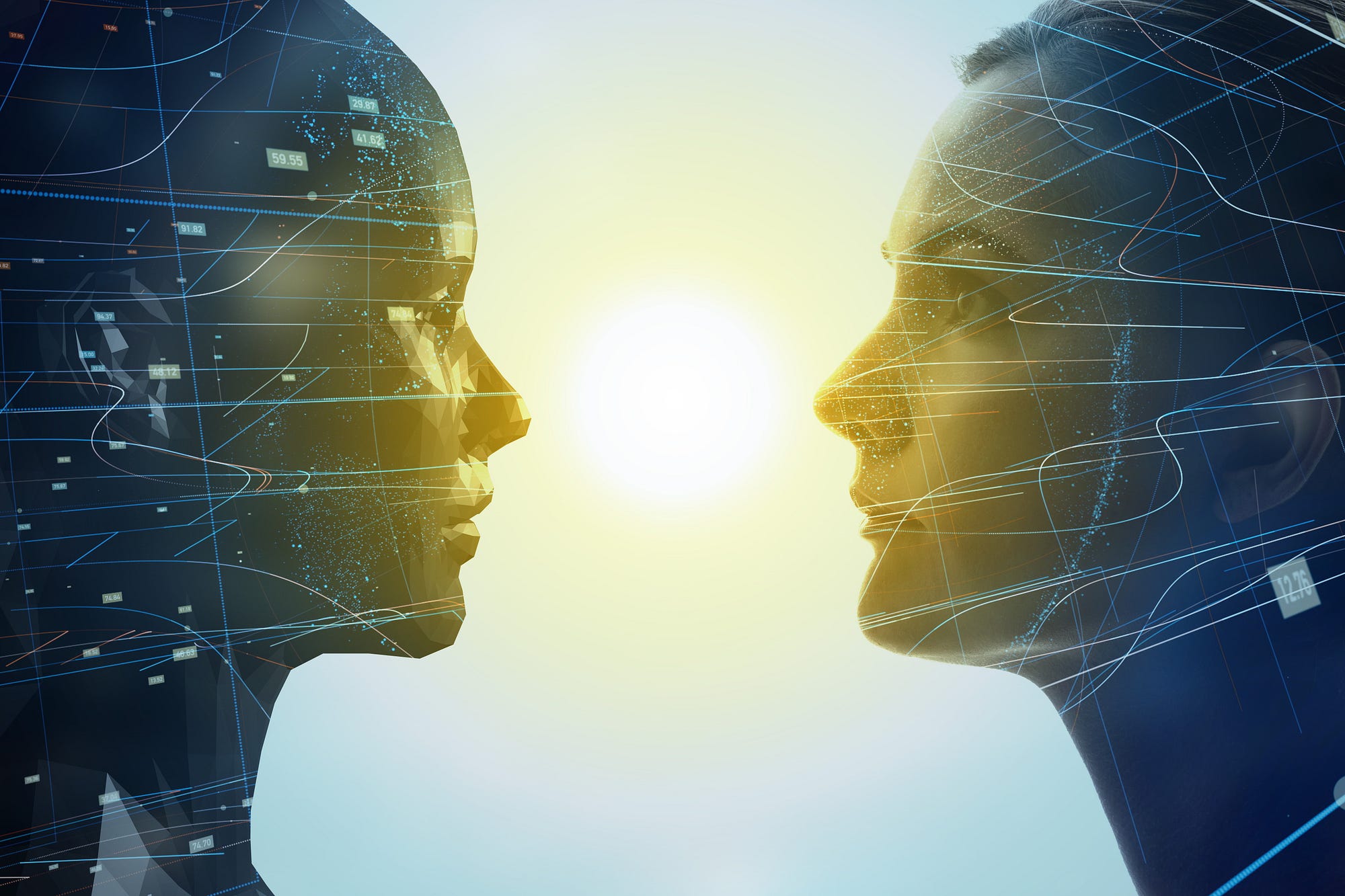Is Artificial Intelligence A Social Issue?
Artificial intelligence (AI) is a rapidly growing technology that promises to revolutionize many aspects of our lives. With this technology comes the potential for a host of social issues, some of which are already starting to become apparent. AI has the potential to cause displacement in the workforce, increase economic inequality, and lead to privacy concerns. Additionally, AI can be used to create autonomous weapons, which could lead to a variety of ethical dilemmas. As AI continues to develop, it is essential to consider the social implications of these technologies and how to address them.
Defining Artificial Intelligence
(AI)
Artificial Intelligence (AI) is a broad term used to describe a variety of computer-based systems that can independently perform tasks that would otherwise require human intelligence. AI is an umbrella term that includes sub-disciplines such as machine learning, deep learning, natural language processing, image recognition, and robotics. These technologies are becoming increasingly sophisticated and advanced, allowing them to analyze large datasets faster and more accurately than humans. This has enabled AI to automate tedious processes, optimize decision-making, and uncover insights from data that were previously inaccessible. AI has already had a major impact on the world, and its use is expected to continue to grow in the coming years. With this growth, there is a need to consider the potential ethical, social, and economic implications that AI may have on society.
The Impact of Artificial Intelligence on Society
Artificial Intelligence (AI) is a rapidly advancing technology that has the potential to revolutionize the way we live and work. AI can be seen as both a tool and a potential threat to humanity. While AI has the potential to make our lives easier and more efficient, it can also be used to manipulate and control people. AI can be used to monitor and control people’s behavior, target them with specific advertisements, or even manipulate the outcome of elections. AI can also be used to automate tasks that would otherwise require human labor, thus displacing and/or replacing people in the workforce. Furthermore, AI can pose a threat to privacy and civil liberties, as algorithms can be used to track and analyze user behavior without their knowledge or consent.
The impact of AI on society is complex and multifaceted. It is essential that the development of AI is carefully monitored and regulated to ensure that it is used for the benefit of society and not for its detriment. Ultimately, AI holds the promise of a better future, but its potential benefits must be balanced with the potential risks. It is only through a thoughtful, collaborative effort that AI can be developed and used responsibly to create a better, more equitable world.
Potential Benefits of Artificial Intelligence
(AI)
As Artificial Intelligence (AI) technology advances, its potential applications become increasingly diverse. AI promises to revolutionize various aspects of our lives, from health care and education to transportation and energy. AI can also be used to improve the quality of life, including providing better access to jobs, housing, and health care. AI can also help to reduce poverty and inequality, by providing access to better educational and employment opportunities. AI can also help to streamline processes, such as providing automated customer service and reducing wait times at hospitals and other medical facilities. AI can also help to increase safety, by helping to identify potential threats and allowing for faster response times. Additionally, AI can help to reduce energy costs and conserve resources by reducing waste and optimizing energy consumption. While AI does present some ethical and social questions, its potential benefits should not be overlooked.

Ethical Considerations of Artificial Intelligence
As Artificial Intelligence (AI) continues to make its way into our daily lives, many ethical considerations arise about its potential applications and consequences. AI has been used in a variety of ways, from facial recognition software to autonomous vehicles, and it has the potential to revolutionize the way we interact with the world. While the potential benefits are apparent, it is also important to consider the ethical implications of AI and its potential uses.
The ethical considerations of AI largely revolve around questions of autonomy, privacy, and accountability. Autonomy, for instance, refers to the notion that AI should be able to make decisions independently without human interference. Privacy is another important ethical consideration, as AI systems can collect and store vast amounts of data without an individual’s knowledge or consent. Lastly, accountability is a concern, as it is difficult to assign responsibility for the decisions made by an AI system.
These ethical considerations have led to the development of various frameworks, such as the European Commission’s Ethical Guidelines for Trustworthy AI, which seek to ensure that AI systems are created with the safety and wellbeing of individuals in mind. Additionally, research is being conducted into the development of AI systems that are designed to be transparent and accountable, as well as work with humans rather than replace them.
Ultimately, AI is an exciting technology that has the potential to revolutionize many aspects of our lives. However, it is important to consider the ethical implications of its development and potential uses. By doing so, we can ensure that AI is used responsibly and ethically, and that its potential is realized in a way that benefits all of us.
Potential Risks of Artificial Intelligence
The potential risks of artificial intelligence (AI) are as multifaceted as the opportunities it offers. AI has the potential to revolutionize our lives, but it also carries the potential for misuse, and its unchecked development could lead to disastrous consequences. AI risks include the potential for job displacement, data privacy concerns, and the potential for the weaponization of AI.
AI could lead to job displacement, as machines are increasingly able to do tasks that once required human labor. This could lead to large-scale job losses, with people unable to compete with AI-driven automation. Data privacy concerns are also a risk, as AI learns and stores an ever-increasing amount of data about individuals and their behavior. Finally, AI could be weaponized, with AI-driven weapons potentially choosing their own targets, leading to the potential for mass destruction.
These potential risks of AI are a cause for concern, and we must ensure that AI is developed responsibly and ethically. We must also ensure that the development of AI is accompanied by appropriate safeguards and regulations, in order to prevent any misuse. We must carefully consider the implications of AI and strive for a detailed understanding of the potential risks in order to ensure that AI is used for the benefit of all.
Implications for the Future of Artificial Intelligence
The implications of Artificial Intelligence (AI) are far-reaching and have the potential to shape the future of society, both positively and negatively. AI technology has the capacity to revolutionize many industries, but it is not without its ethical and social implications. AI can automate processes, reduce the need for human labor, and create job displacement. It can also lead to increased surveillance and privacy concerns. In addition, AI can lead to increased inequality and exclusion if it is not implemented responsibly and equitably.
AI has the potential to shape the future of healthcare, education, and transportation, but it is critical that these technologies are implemented in a manner that is socially responsible and equitable. AI can be used to improve access to healthcare and education, but it can also lead to increased surveillance and privacy violations. It is important that the development and use of AI is done in a manner that is ethical and responsible, and this requires a global effort to ensure that AI is used for the benefit of all.
AI has the potential to create a more equitable and prosperous future for society, but it is important that it is done in a responsible and ethical way. It is critical that we take measures to ensure that AI is not used to exclude or disadvantage certain groups or individuals. We must also ensure that AI is used to benefit humanity and not be used for malicious purposes.
The implications of AI are far-reaching and complex, and it is important that we take the time to consider the potential implications and ensure that AI is used responsibly and ethically. It is essential that we take a global approach to AI and ensure that the technology is used for the benefit of all.
FAQs About the Is Artificial Intelligence A Social Issue?
1. What are some examples of social issues related to artificial intelligence?
Answer: Artificial intelligence can be linked to many social issues, such as inequality, privacy and surveillance, employment, and automation.
2. How can artificial intelligence be used to solve social issues?
Answer: Artificial intelligence can be used to support decision making, automate labor-intensive processes, improve access to healthcare and other services, and develop systems that can support more equitable outcomes.
3. What are the potential risks associated with artificial intelligence?
Answer: Potential risks associated with artificial intelligence include increasing inequality, algorithmic bias, and data privacy concerns. Additionally, AI could lead to job displacement and automation of certain tasks, which could have economic consequences.
Conclusion
In conclusion, Artificial Intelligence is a complex social issue. Its potential to automate jobs and create new ones is a source of debate in the modern world. AI can also produce an increase in inequality, and it can also be used to target vulnerable populations. These social issues must be addressed in order to ensure that the use of AI is both beneficial and responsible.



